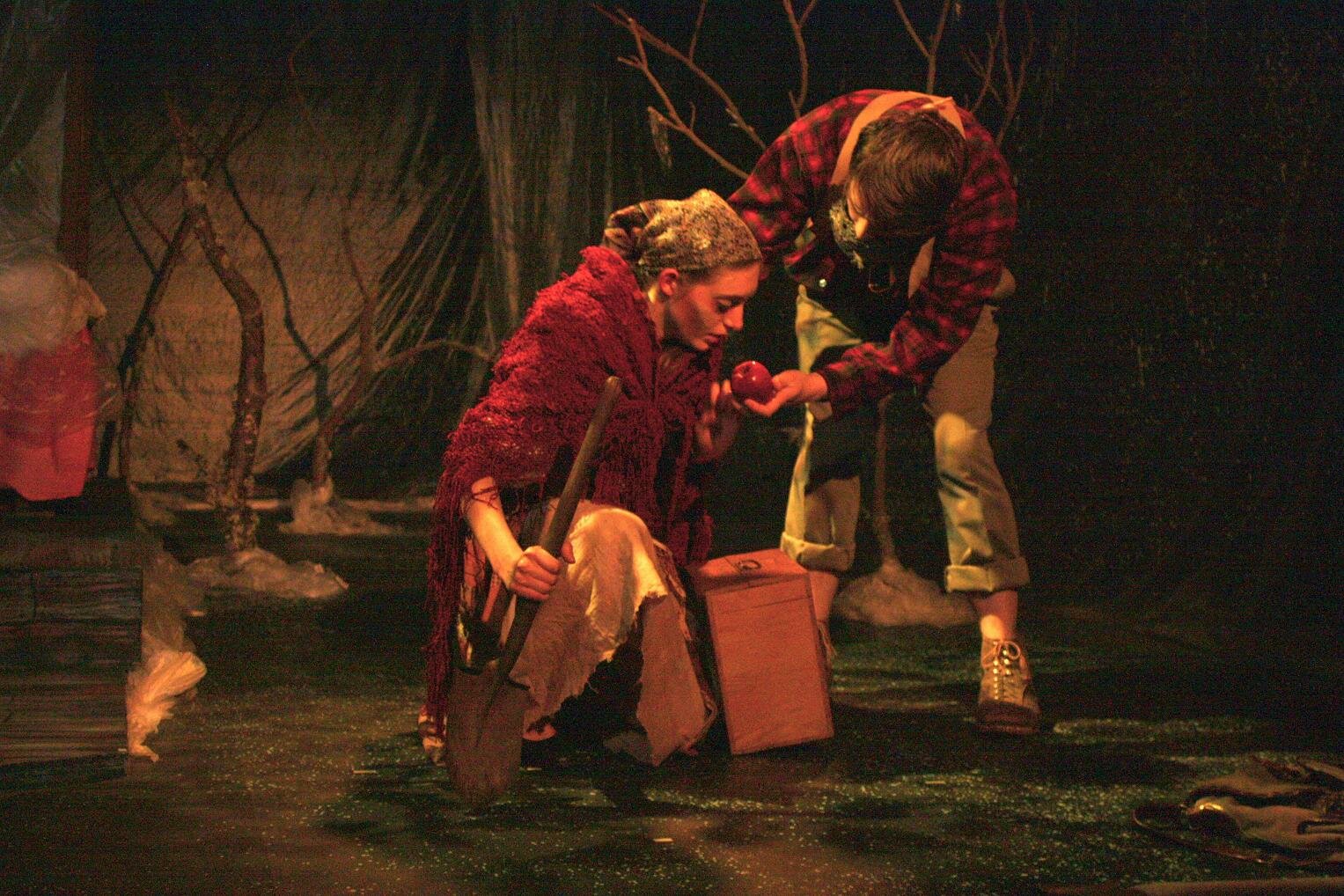Playwright Allison Gregory has had significant success in her career but Macha Monkey’s current production of Cliffhouse (at Richard Hugo House through March 30) provides no hint of the experience and talent her past productions suggest. This world premiere production is riddled with hackneyed and ill-fashioned phrases masquerading as puns and bon mots. Characters are as flat and sheer as the legs and backdrop of Robin McCartney’s effective set and the actors do little to ameliorate the situation.
Cliffhouse gives us therapy camp for a special sort of person — to tell you what makes these people special would reveal one of the few elements of surprise and most of the plot. Suffice it to say that three of the four characters are strangers to Cliffhouse who must decide before curtain call whether they’re going to leave and where they will go. With one exception we have no investment in these journeys, we just want them to end.
The production begins promisingly by breaking the fourth wall. This is in keeping with a set that feels symbolic and detached from time and space, but the attitude is fleeting. For the most part this play lives solidly behind its fourth wall. Nonetheless that break is one of the more effective moments in the show. It places us in direct empathy with the characters’ situation, no matter how faint their definition may be.
Meghan Arnette’s direction is mixed. One is never quite certain of the spatial relationships on stage. Often the blocking works to separate the three major acting areas while at times those areas are brought together by the actors’ interactions. This works so long as Arnette follows her own rules and clearly frames the changing organizing principles of the space. However a few entrances and exits break those rules in ways that feel amateur and disconnected from the rest of the production.
Kelsey McCornack’s costumes are also hit and miss (biggest miss: Cliff’s ascot, which is tied in an awkward, iconoclastic fashion). She has greater success with the simplicity of Troy Lund’s rock climber.
Kristina Sutherland, as Lana, holds the piece together. She has the advantage of the most fully-realized character in the script, the Dorothy of this particular yellow brick road of a journey. Most of the other characters have the opportunity to grow and change, but we become most intimately attached to Lana’s struggle. West (Troy Lund) might be more affecting were more of the character from his flashbacks visible in the present-time depiction rather than the reverse. He speaks of climbing cliff faces with the presence of a guy who is kind to small children but intimidated by teenagers.
Meaghan Halverson and Vincent Delaney do little to relieve the monotony of their characters, though Meaghan offers some compelling, if artless, storytelling. Delaney gives us Cliff’s voice as an unrelenting stream of heavy cream. While his cloying obsequiousness justifies Lana’s conclusion that she hates him (rather than his house) he overdoes it. Even without the problems of the script Delaney’s performance would make the production nearly unwatchable. He is clearly a talented actor and Arnette owns some responsibility for this performance. Choreographer Juliet Waller Pruzan does much better by Delaney in staging his pas de deux with Halverson.
There is a dictum among artists that if one is going to fail, one should fail big. Macha Monkey and Allison Gregory seem to have embraced this philosophy. One hopes it will lead to great success in the future.

